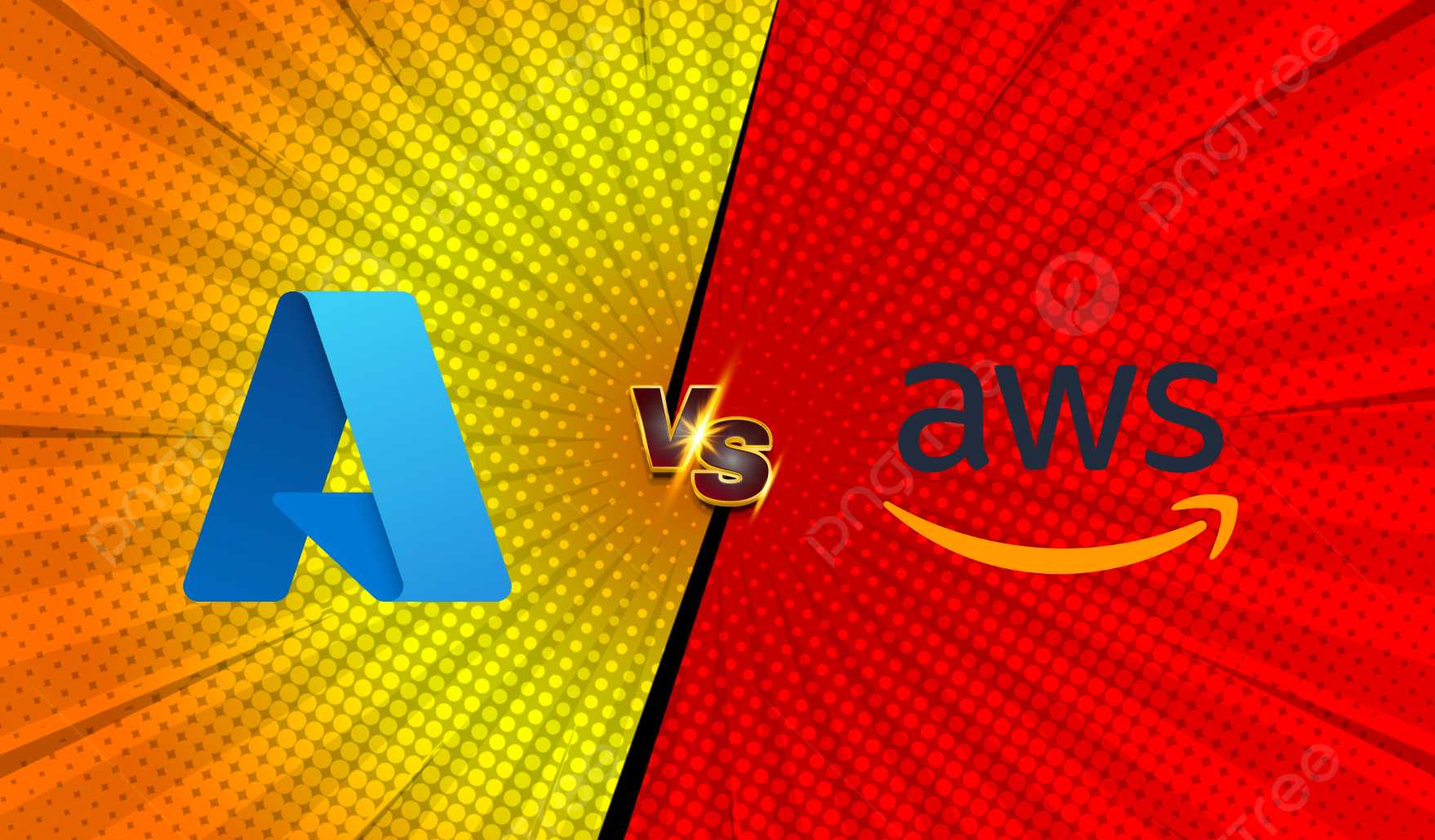Home Blogs Technical AWS Vs Azure: A Comprehensive Comparison
Posted By: Shriji Solutions
07 December, 2024

Cloud computing has revolutionized the way businesses operate, offering scalable, flexible and cost-effective solutions. Among the leading cloud service providers, Amazon Web Services (AWS) and Microsoft Azure stand out as industry giants. Both platforms offer a wide range of features and services, but which one is better suited to your needs?
This article takes an in-depth look at their offerings, comparing features, pricing, usability, and more.
What is AWS?
Amazon Web Services (AWS) is a cloud computing platform provided by Amazon. Launched in 2006, AWS has become a dominant force in the cloud industry, offering more than 200 fully featured services. It serves clients across all industries, from startups to Fortune 500 companies.
Key Features Of AWS:
- Comprehensive Service Offering: This includes compute power, storage, databases, machine learning, analytics, and more.
- global presence: AWS operates in 32 regions and has 102 availability zones around the world.
- Scalability: Automatically scales up or down based on demand.
- Security and Compliance: Provides strong security measures and is compliant with global standards.
What is Azure?
Microsoft Azure is a cloud computing service by Microsoft, launched in 2010. Despite being a latecomer compared to AWS; Azure has gained significant traction due to its seamless integration with Microsoft products.
Key Features of Azure:
- Hybrid Cloud Capabilities: Powerful hybrid cloud infrastructure to connect on-premises and cloud environments.
- Integration with Microsoft ecosystem: Best suited for organizations using Microsoft software like Office 365 and Dynamics 365.
- Global Coverage: Operates in over 60 territories worldwide.
- AI and Machine Learning: Provides AI services, data analytics, and IoT tools.
Comparison Of AWS And Azure
1. Market Share and Adoption
- AWS: AWS is the market leader in cloud computing, capturing approximately 32% market share by 2024. Its early start gave it a competitive edge.
- Blue: Azure has about 23% market share. Its growth rate is impressive, driven by Microsoft's broad customer base.
2. Service Offering
Both platforms offer a wide range of services, but there are subtle differences:
- Calculate:
- AWS: Elastic Compute Cloud (EC2) offers a variety of instances to suit different workloads.
- Azure: Virtual machines (VMs) provide similar flexibility but focus on Windows-based workloads.
- storage:
- AWS: S3 (Simple Storage Service) is famous for scalability and durability.
- Azure: Azure Blob Storage is a direct competitor with similar capabilities but excels in hybrid environments.
- Networking:
- AWS: Advanced networking options like Amazon VPC.
- Azure: Azure virtual networks integrate seamlessly with on-premises networks.
3. Pricing
Pricing is an important factor for most businesses. AWS and Azure offer pay-as-you-go models, but their pricing structures differ:
- AWS: It is generally considered more flexible in terms of pricing but can be expensive for specific use cases.
- Blue: Competitive pricing, especially for Windows-based services, and offers discounts for existing Microsoft customers.
4. User-Friendliness
- AWS: The learning curve is steep due to the breadth of services, but the documentation is thorough.
- Blue: It is easy to use for beginners, especially those who are already familiar with Microsoft tools.
5. Performance And Reliability
Both platforms are reliable, but performance may vary depending on location and workload type:
- AWS: Consistently ranks high in performance metrics.
- Blue: Performance is comparable but may lag slightly in specific areas.
Unique Strengths Of AWS
- Major Ecosystems: AWS Marketplace offers thousands of third-party integrations.
- Innovation Leadership: Often introduces cutting-edge features before competitors.
- Comprehensive Support: A huge developer community and support network.
Unique Strengths of Azure
- Microsoft Integration: Seamless compatibility with Windows Server, Active Directory, and SQL Server.
- Hybrid Cloud Leadership: Azure Arc enables consistent management across environments.
- AI and Analytics: Advanced AI and data services, including Azure Synapse and Cognitive Services.
Security And Compliance
Both AWS and Azure prioritize security and compliance, providing encryption, access controls, and auditing features.
- AWS: Boasts over 90 compliance certifications including GDPR, HIPAA, and PCI DSS.
- Blue: Matches AWS in compliance certifications and excels in government cloud offerings.
Developer And Devops Support
- AWS: Comprehensive tools like AWS CodePipeline and AWS CodeBuild for CI/CD.
- Blue: Azure is a robust suite for DevOps development and deployment.
Global Access and Data Center
Both providers have extensive global footprints:
- AWS: Focuses on fewer but larger data centers.
- Blue: It has more regions, making it ideal for organizations requiring localized services.
When To Choose AWS
AWS is a better choice if:
- You need a platform with extensive third-party integration.
- Scalability and innovation are your priorities.
- Your workloads are diverse and require specialized services.
When To Choose Azure
Azure is ideal if:
- Your organization is highly dependent on Microsoft products.
- Hybrid cloud is a major necessity.
- You value AI and data analytics tools.
Conclusion
Choosing between AWS and Azure depends on your organization's specific needs, budget, and existing infrastructure. AWS excels in scalability, innovation, and service diversity, while Azure shines in hybrid cloud capabilities and integration with Microsoft products.
For businesses seeking expert guidance and tailored solutions for AWS or Azure, Shriji Solutions Provides professional services to meet your cloud computing needs. Contact Shriji Solutions today for expert assistance!

